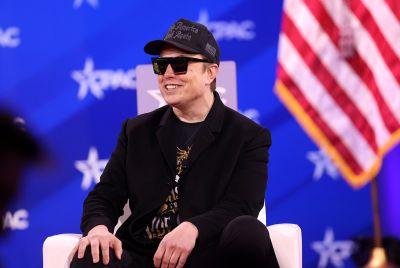Fortnite Returns to US App Store After $1B Showdown With Apple: Why Was It Removed?
The dispute began in 2020 when Epic bypassed Apple's 30% in-app purchase commission

After a five-year absence, Fortnite has made its long-awaited comeback to the US App Store, reigniting conversation around digital rights and corporate power in the tech industry. Its return marks the end of a bruising legal war between Epic Games and Apple—one that reshaped the rules of the App Store and sent shockwaves through the developer world. But what pushed Fortnite off iPhones in the first place, and what has changed since?
The Billion-Dollar Battleground
Following a protracted legal fight, Fortnite is officially back on the US App Store. The announcement was welcomed by Epic Games CEO Tim Sweeney, who described the outcome as a 'priceless' win for app developers in a statement to Business Insider.
The game's return was swift and decisive—it shot to the top of the App Store's games chart within 24 hours. But the road to this moment was long and costly. In an earlier interview with Business Insider, Sweeney revealed that the legal fight had cost Epic more than $1 billion (£750 million) since 2020.
Why Fortnite Disappeared: The Core Dispute
The original clash stemmed from Apple's App Store policy, which required all in-app purchases on iOS to be processed through Apple's platform—allowing the tech giant to take up to a 30% commission on every transaction.
In 2020, Epic Games deliberately bypassed this rule by introducing an alternative payment system in Fortnite, leading Apple to immediately remove the game from the App Store. That decision triggered the lawsuit and set the stage for a landmark battle over digital commerce.
A Costly Win: Was It Worth It?
Once Fortnite reappeared on the App Store, Business Insider asked Sweeney whether the years-long legal grind and financial toll had been worthwhile. His response was clear: 'Yes. These newly recognised freedoms are priceless.'
Sweeney added that the victories gained in the US and Europe must now be extended globally. 'I hold out hope of Apple and Google doing that themselves, proactively, rather than being subject to waiting for different and potentially contradictory new laws to be passed around the world.'
The Legal Fight Isn't Over
While Fortnite is back, the legal battle rages on. Epic is still locked in a similar lawsuit with Google over its app store rules. Meanwhile, Apple is currently appealing the court's enforcement of an anti-steering injunction—a key part of the ruling that forced Apple to allow developers to direct users to alternative payment options.
US District Judge Yvonne Gonzalez Rogers has scheduled a hearing for 27 May to address Apple's alleged non-compliance with the injunction. According to Business Insider, this includes questions around why Apple delayed approval of Epic's 9 May submission to bring Fortnite back.
Epic declined to comment further, and Apple has yet to publicly respond. The company has previously said its App Store rules are in place to protect user safety.
Tech Giants Take Sides
The case has gained broad support from other major tech players. Spotify, Microsoft, and additional companies submitted amicus briefs this week backing Epic's stance. The filings argue that enforcing the court's ruling is not only fair to developers but also better for consumers—offering greater choice, flexibility and competition.
© Copyright IBTimes 2025. All rights reserved.






















